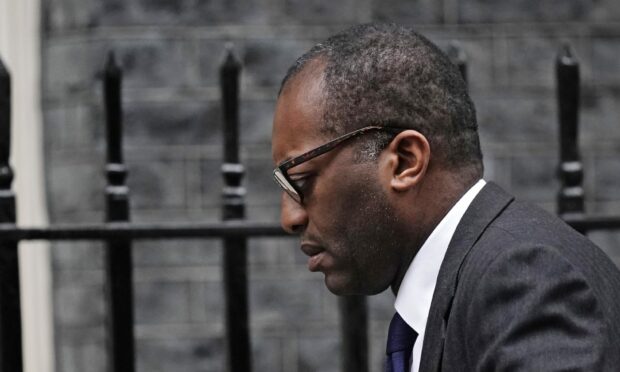Kwasi Kwarteng’s abandoned tax cut for the richest wouldn’t have done much to boost the UK’s finances, according to an Aberdeen University expert.
Professor Keith Bender, a chair in economics at the university’s business school, said it looked like a “purely ideological policy” which only made up a small part of the government’s package to reduce taxes.
Liz Truss and her chancellor were forced to backtrack on controversial plans to abolish the 45p rate for the wealthiest who earn more than £150,000.
The Bank of England was forced to intervene, the value of the pound sunk, and it’s now been warned the country could face another wave of austerity to balance the books.
Prof Bender told The Press and Journal: “When there is what the markets deem a purely ideological policy, they react negatively to that.
“It also probably wouldn’t have had much of an effect on the economy, so the justification of stimulating growth was probably not going to happen.”
Mr Kwarteng unveiled £45 billion in tax cuts when he announced his mini-budget earlier this month.
Policies which are still due to be passed at Westminster include a reduction in corporation tax and a reversal of plans to increase national insurance.
Scottish Tory leader Douglas Ross repeatedly urged the SNP to follow suit with similar cuts in Scotland.
Senior Conservatives have warned taxpayers and businesses could flee down south if they are able to pay more generous rates.
However, Prof Bender said it was unlikely many people would leave Scotland when tax differences are quite small.
He told us: “Taxes may be higher here, but you would weigh that up against any perceived benefits of staying in Scotland.
“I would be hard-pressed to think people’s residency is that sensitive to taxes.”
‘Volatile time’
The economics expert admits the UK could be in for a “volatile time” as inflation and interest rates remain high.
And he said lowering taxes in the hope of fuelling growth was a “blunt instrument” that was unlikely to change much without improved investment.
Professor Morris Altman, from the University of Dundee, also said the chancellor’s financial package wouldn’t do much to improve the UK’s financial situation.
He told us: “If you look at the evidence, simply cutting taxes never acts as an engine of growth.
“If you want to grow, you need to invest money so you can have infrastructure which creates an environment for more growth to take place.”



Conversation